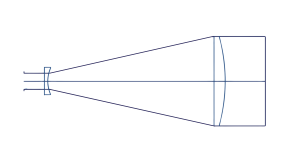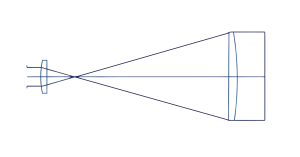Laser Beam Expanders: Insights and Applications
Laser beam expanders are pivotal components in various fields, enhancing the quality and functionality of laser beams. These devices modify beam characteristics such as diameter and directionality, making them crucial for scientific research, industrial processes, and advanced technological applications.
Categories of Beam Expanders
Beam expanders are generally classified into two principal types: Galilean and Keplerian. Each type offers distinct features tailored to specific needs.
-
-
- Structure: This type consists of a convex lens and a concave lens arranged to achieve magnification. The design avoids internal convergence points, which helps prevent heat accumulation and minimizes aberration.
- Advantages: Galilean expanders are compact, making them suitable for high-power laser systems where heat management is crucial. Their design facilitates easy integration into various systems without complex adjustments.

Galilean Beam Expander
-
- Structure: Keplerian expanders use two positive focal length lenses, with the beam converging at the focal plane between them. This configuration allows for significant magnification but can result in heat generation and potential aberration issues.
- Advantages: While Keplerian expanders provide higher magnification, their heat generation at the convergence point makes them less ideal for high-power applications compared to Galilean expanders.

Keplerian Beam Expanders
Primary Functions of Beam Expanders
Laser beam expanders serve several key functions that are essential for optimal performance in various applications:
- Beam Enlargement: Expanding the beam diameter helps reduce power density, protecting sensitive optical equipment. This adjustment also contributes to a more uniform light output.
- Enhanced Beam Convergence: By expanding the beam before it enters a convergence system, the resolution of optical systems like microscopes and imaging lenses is improved. This results in better image clarity and reduced system aberration.
- Reduction of Beam Divergence: Beam expanders help in managing the divergence of Gaussian beams. By increasing the beam diameter, the divergence angle is minimized, enhancing the beam’s directionality and accuracy.
Key Design Considerations
Choosing and designing a laser beam expander involves several critical factors:
- Material Selection: Lens materials should be compatible with the specific wavelength of the laser to ensure optimal performance and longevity.
- Coating Quality: Coatings must be able to handle high-energy lasers without degradation, ensuring durability and efficiency in various applications.
- Integration: Compact and well-designed expanders, such as the Galilean type, are easier to incorporate into existing systems. Fixed magnification options provide consistent performance without frequent recalibrations.
- Focused Spot Precision: Expanding the beam diameter improves the focused spot size, which is vital for precision tasks like laser cutting and medical applications.
Advanced Expander Technologies
For specialized needs, advanced beam expanders offer additional capabilities:
- Zoom Expanders: Provide adjustable magnification, allowing for flexible applications and fine-tuning of beam size.
- Achromatic Expanders: Designed to minimize chromatic aberration, ensuring high precision and clarity in complex optical setups.
Laser beam expanders are indispensable for optimizing the performance of laser systems. By enhancing beam diameter, improving convergence, and reducing divergence, these devices play a crucial role in achieving precise and reliable results across various fields. Whether choosing a Galilean or Keplerian design, understanding the specific requirements of your application ensures that the expander will effectively enhance the overall effectiveness of the laser system.
Contact Shanghai Optics today! We’d be more than happy to discuss your projects and how to best bring them to fruition.

